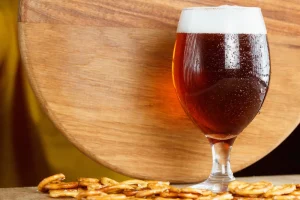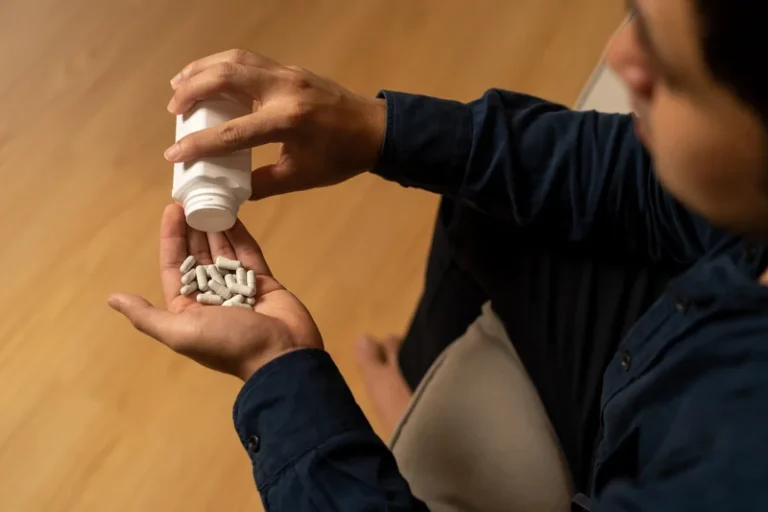
Your body and brain are healing, and without the numbing qualities of alcohol, it’s natural for intense emotions to arise, including anger. As a therapist on the Monument platform, I often work with my patients to identify the root cause of their anger, and establish healthier ways to process intense emotions in sobriety. By studying subjects’ responses to various social cues and stimuli with and without the influence of alcohol, researchers found that drinking alcohol made people more sensitive to certain behaviors while also being less likely to follow social norms of politeness. Essentially, drinking makes us less likely to withhold our reactions when we’re angry or annoyed. Mood stabilizers, antidepressants, or anti-anxiety medications can all help to regulate and control negative emotions, during both detox and treatment for anger management and alcohol addiction. After detox, individuals suffering from co-occurring disorders often proceed directly into a residential treatment program where structured around-the-clock programming can help to manage both disorders.
Financial support and sponsorship

We might also misread social cues and lash out in response to perceived slights, nonexistent threats, or frustrations. The urn random assignment was carried out by the project coordinator via a computerized program. From exploring the neurological effects of alcohol as a depressant to unraveling the psychological complexities underlying anger manifestation, we have gained a profound https://ecosoberhouse.com/ understanding of the underlying mechanisms. Family therapy addresses familial dynamics and relationships, fostering support networks and promoting open communication. Psychodynamic approaches delve into underlying emotional conflicts and unresolved traumas, offering insight and resolution. Offering reassurance and support can help alleviate feelings of distress and frustration.
1 Outcomes of Alcohol-adapted Anger Management Treatment
The Reframe app equips you with the knowledge and skills you need to not only survive drinking less, but to thrive while you navigate the journey. Our daily research-backed readings teach you the neuroscience of alcohol, and our in-app Toolkit provides the resources and activities you need to navigate each challenge. Consider cutting back or abstaining from alcohol, identifying triggers that make you angry, and practicing stress management techniques like meditation.

Providing reassurance and support
It’s sometimes easier for angry people to become aggressive when they’re inebriated. A slight annoyance may turn into an infuriating problem, thanks to alcohol. Research has shown that thought suppression may contribute to alcohol-related aggression. One study supporting this finding enlisted 245 men with a history of heavy episodic alcohol use (Berke et al., 2020). They completed surveys assessing their endorsement of traditional masculine norms, use of thought suppression, and both trait and alcohol-related aggression. It was found that thought suppression mediated the association between the toughness masculine norm and alcohol-related aggression.
What Causes Alcohol-Related Anger and Aggression?
Attending one-on-one therapy with a licensed therapist can help you work through anger issues in a more private setting. Scheduling an appointment with a professional who specializes in anger management may be more beneficial than participating in group therapy if you have social anxiety. These days, people who misuse alcohol can enroll in various treatment programs, whether you choose the 12-step approach or decide to enter residential treatment. If you’re looking for help getting started, it’s wise to speak with your physician first. To combat aggressive behavior when drinking, individuals should consciously seek help.

Moreover, CBT interventions encompass assertiveness training and interpersonal skills development, empowering individuals to communicate their needs and boundaries effectively while navigating challenging situations. Recognizing that each individual’s journey toward recovery is unique, individualized treatment plans are essential. As alcohol enters the bloodstream, it begins to affect the neurotransmitters in the brain, leading to disruptions in these critical alcoholism and anger functions. “Alcohol is involved in half of all murders, rapes, and assaults,” said Robert O. Pihl, professor of psychology and psychiatry at McGill University. “But the dynamics of this association are complicated, which is why any research that focuses on explaining this relationship is important for society in general.” It affects parts of your brain responsible for movement, memory, self-control, and basic functions like hunger and thirst.
Reduced consideration for consequences

- Furthermore, alcohol can make you focus too much on specific words or behaviors from other people.
- If your pattern of drinking results in repeated significant distress and problems functioning in your daily life, you likely have alcohol use disorder.
- Anger management and alcohol treatment programs must recognize and educate participants about the relationships between alcohol and anger.
- Similarly, those overwhelmed by anger might use alcohol for relief, only to find it intensifies their inner conflict.
- It’s a natural human response when life seems unfair or something you value is under threat.
- Drinking can have a relaxing or anxiety-relieving effect by mimicking the “chill-out” effects of GABA.

